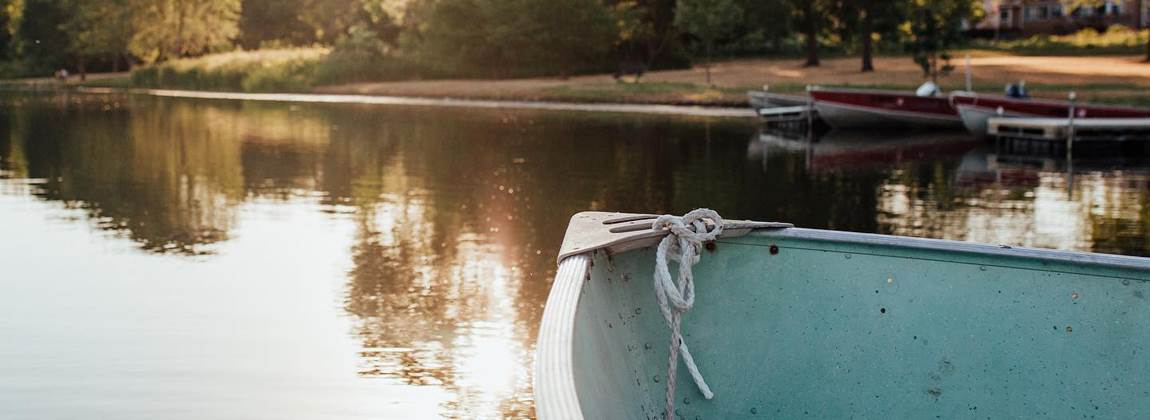Local Governments: Nature's Best Friend Now

If you visit a park like Easter Lake or bike one of our many trails in Greater Des Moines (DSM) right now, you’ll enjoy some of the region’s continued beautiful fall weather. The COVID-19 pandemic has created extra value for being outdoors. In Polk County, park attendance increased over 30% in 2020 alone. That’s why funding the region’s nature offerings should be a priority for voters in 2021.

Water and Land Legacy Bond Referendum
Why should you vote yes to the Water and Land Legacy bond referendum?
Polk County residents have a perfect opportunity on Election Day, Tuesday Nov. 2, to show how much they care for nature and want to enjoy it. By voting yes to approve the Water and Land Legacy bond referendum, voters will unlock $65 million to be used for conservation. The funding, about $11 per year for the average homeowner, will be used for: water quality, river protection, wildlife and nature preservation, flood mitigation, outdoor recreation and trails. Prospects are promising because 72% of Polk County voters approved a $50 million Water and Legacy bond in 2012. Those funds were put to great use on projects like the Jester Park Nature Center, renovating Easter Lake, improving trails in Brown’s Woods and new connections for county bike trails, for example. An additional $42 million in public and private funding was leveraged, meaning the impact of the vote almost doubled.
How much would the bond referendum allocate to projects in Polk County?
The new plan allocates $25 million for water projects, $20 million for parks, $10 million for trails and $10 million for land.
How can you help if you don’t live in Polk County, but still want to enjoy natural protections here?
Even if you don’t live in Polk County you should encourage friends and family who do to vote yes. A yes vote will do more than unlock natural resource funding. Approving the bonds will be powerful evidence for state leaders Iowans want more funding for nature. Most readers are aware that in 2010 more than 62% of Iowans voted to amend our constitution to create the Natural Resources and Outdoor Recreation Trust Fund — known as IWILL — with the next 3/8 cent sales tax increase. Over a decade later, the Iowa legislature and state leaders have not put a penny into the fund. If voters in Polk — and Dubuque County where a similar $40 million bond issue is on the ballot — vote by 60% to pass the initiatives, perhaps our political leaders will wake up and get the message. Iowans want more natural resource protection and are willing to tax themselves to pay for it.
 Why is it important for Iowa’s government to be held responsible for water quality and nature in the state?
Why is it important for Iowa’s government to be held responsible for water quality and nature in the state?
There is another important story in these referendums. We have three branches of government — legislative, executive, and judicial; and three levels of government — federal, state, and local. It seems when it comes to protecting nature local governments are where the action is now. Congress is tying itself into knots over self-inflicted crises like increasing the debt ceiling and keeping government open. At the state level, all three branches of government have seemingly turned their backs on nature. This summer, a divided Iowa Supreme Court ignored using the Public Trust Doctrine to hold state officials responsible for protecting rivers. Manure spills and disputes over questionable administrative decisions, like approving Supreme Beef’s 11,600 head cattle operation near Bloody Run, a protected trout stream, create the impression some state officials aren’t concerned about water quality or nature. The 2021 Iowa legislature went home without taking any significant action on water quality. Now is the time to change that.
What are water quality and nature initiatives that need funds in 2021?
In 2021, the Polk County Soil and Water Conservation Commission funded a water quality initiative for landowners to install more than 50 saturated buffers, while the Iowa Department of Agriculture hadn’t installed that many in 10 years. Another opportunity may soon open. This past January, in Iowa, local governments received over $1 billion from the American Rescue Plan, or ARPA — the COVID-19 Relief bill pushed by President Biden, and many are allocating some of those funds for water infrastructure. The Polk County Board of Supervisors may soon take this action — and who knows, if they do, perhaps supervisors here in Dallas County might follow. The lesson is — there is reason for hope if we don’t give up on nature. Treat it with respect and our reward will be a rich harvest of enjoyment.
Greater Des Moines (DSM) has one of the best business climates in the country. The region is nationally recognized for having a talented and educated workforce, a cost of doing business 13% below the national average, a low cost of living and an exceptional quality of life.
The Partnership's Public Policy team engages with local, state and federal officials to create public policy that generates economic growth, business prosperity and talent development in Greater Des Moines (DSM). The Partnership is a nonpartisan organization.
Professor Neil D. Hamilton
Professor Neil D. Hamilton has been a Drake Law School professor since 1983. He is the former director of the Drake Agricultural Law Center, a former assistant attorney general for the Iowa Department of Justice and former assistant professor at the University of Arkansas.